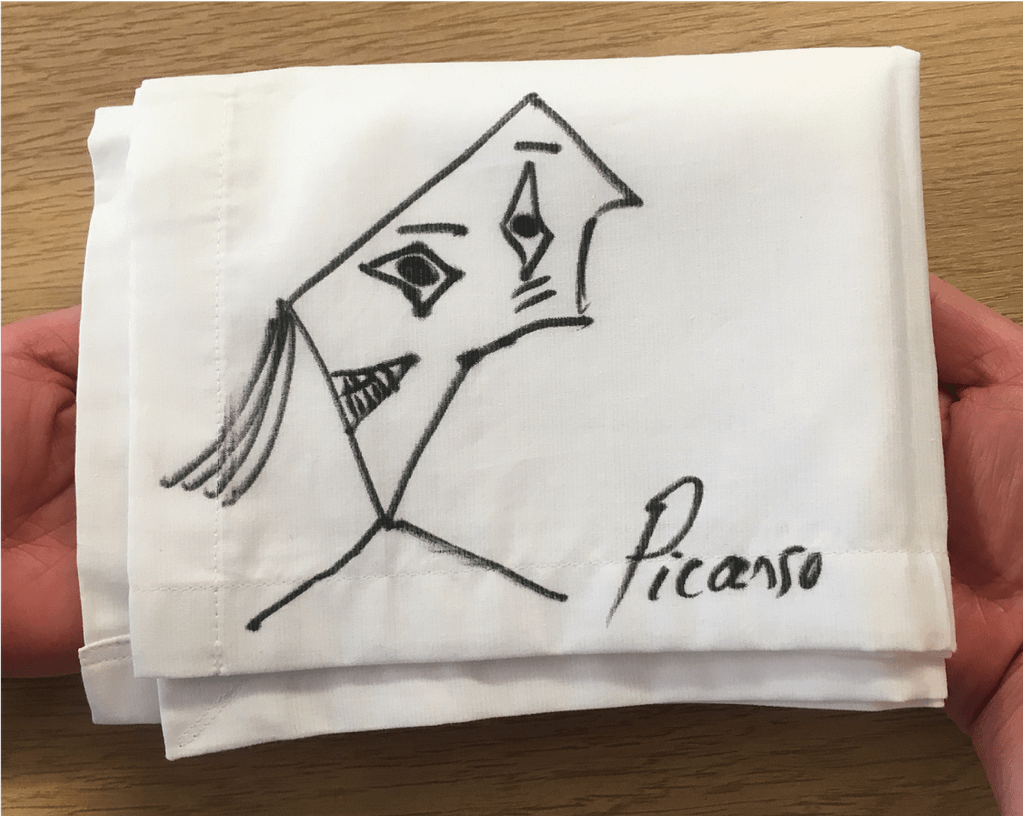Too many consultants offering their expertise as a service hit a brick wall when it comes to asking the client to pay them for their expertise. It is hard to ask a prospect to pay you for your knowledge and expertise. However, if you take the emotion out of asking to get paid, it is much easier to ask them for money.
Have a Pricing Menu
Many clients I speak to resort to an hourly rate when it comes to getting paid because getting paid by the hour is what they are used to when they worked for an employer. However, quoting an hourly rate to get compensated is a bad strategy for several reasons.
One reason is that when you talk about an hourly rate, you are focused on affordability. Also, asking to be paid by the hour demeans your value as an expert in your field. Hourly people are associated with laborers who are paid by the number of hours they spend doing a task (Inputs). Salaried people, by contrast, are paid a fixed amount to accomplish a job and produce an outcome (Results). You do not want to be associated with a common laborer.
Instead, you want to focus on what is possible at the end of an engagement. Also, when you are paid by the hour, a client may choose to end your hourly engagement based on affordability before you have had a chance to actually deliver the transformation you agreed to provide.
Instead of charging by the hour, you should have a menu of services and prices that you developed beforehand. When discussing how much you charge, share what it would look like based on a block of time. You might have a menu item for a 12-month contract of weekly meetings at one price. You may have another menu item for a 6-month contract at another price. Be sure to include a list of things that the 6-month contract would not include while the 12-month contract does. You may even have a 1-day or multi-day intensive program at another price. Keep the levels manageable. Three or four levels are most common.
Let the client choose the level of engagement that is right for them. With a menu, there is no emotion. Too many coaches don’t have a menu and give a fuzzy response such as, “Well, it depends on what you want.” This is a bad way to start and introduces emotion into the discussion of getting paid.
When you develop your menu of service levels, include a ridiculously high-priced item to create a mental anchor. It will make everything else appear less expensive. For example, I have a 1-year full access subscription for $25k and a standard 1-year subscription for $6.5k. The $25k offering serves as an anchor, making the 1-year $6.5k engagement item seem like a bargain. You might be surprised to find that, even if your ridiculously high-priced item serves primarily as an anchor price, some prospects will accept that level of engagement with you.
Never have just one pricing option or charge by the hour. Offer a range of pricing options in your menu and allow the prospect to pick the engagement level they want with you.
Am I Worth It?
Another powerful emotion people have when asking for payment for their services is questioning their worth. Most people are terrified to ask someone to pay them for their knowledge and expertise. Asking someone to pay you based on what you know is not like selling a couch. They fear rejection, and when you are selling your knowledge and expertise, rejection feels very personal, like they are rejecting you personally. Whenever I question if I’m worth it, I remind myself of a story I once heard about Pablo Picasso.

A woman approached Picasso in a restaurant and asked him to scribble something on a napkin for her. She said she would happily pay whatever he felt it was worth.
Picasso complied. Handing over the napkin, he said, “That will be $10,000.”
Astonished, the woman replied. “But you did that in thirty seconds.”
To which Picasso replied, “No, it has taken me forty years to do that.”
NOTE: Many accounts contribute the above story to Picasso because it appeared in the very popular book “Good 2 Great” however most accounts claim the artist was not Pablo Picasso but Salvador Dali. The artist’s name is irrelevant because the message that it took years to master a craft to justify the price of the sketch is the important takeaway.
As an expert in your profession, you are selling your experience and your track record, not your time or your concept. You have likely invested tens of thousands of your hard-earned dollars to fund your education. Moreover, you probably have spent several thousands of hours on personal development and growth over the years. Just like Picasso, what you are selling is your knowledge and expertise that cost you money and time to accumulate. That is what your customers are buying, not your time. What is all this knowledge and wisdom you acquired worth to your prospect in terms of savings? Can they afford the same amount of time and money to reach that same level on their own?
You are selling an opportunity for the prospect to achieve their goals. That kind of knowledge is priceless. They will either say they want to invest in their dreams and agree to pay your fee or not. No emotion. They get to choose.
Avoid Appearing Desperate
Too many of my clients are financially desperate. Customers can smell desperation like a shark can smell a drop of blood in an Olympic-size pool. Customers who sense desperation will make the negotiation about the price. As a person selling your knowledge and expertise, if the question of price comes up, your job is to change the conversation to focus on value.
The higher your price, the longer it will take to get a yes. If you want to earn premium money for your knowledge and expertise, you must be willing to receive a lot of nos. However, too many of my clients need that customer so badly that they are quick to offer discounts to avoid losing the deal.
Avoid giving the impression that you need the customer’s business. In fact, your job should be to audition the client and not the other way around. Ideally, you want to create a degree of scarcity and get the prospect to convince you they are worthy of becoming your client. Instead of letting them run the selling process, you should say that you can only take on one new client. Ask them questions since the person asking the questions demonstrates who has control. You may indicate that you have a score card you use to evaluate new clients. I personally use an application form that they must complete. Tell them that if they are not selected as a good match, it is not personal but that another client would get more value from access to your knowledge and expertise. Sell them on the experience of working with you, not the concept, so you never come across as desperate.
How can you take the emotion out of asking to get paid for your knowledge and expertise?












